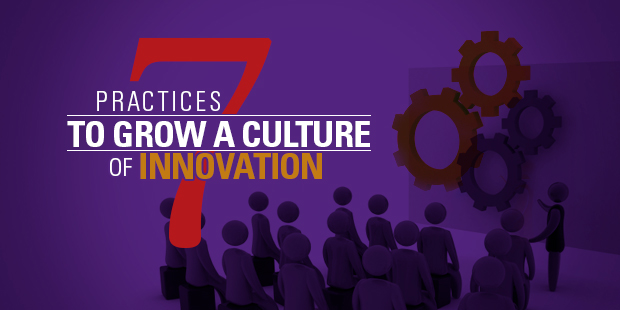
7 Practices to Grow a Culture of Innovation
Innovators working on solving problems and coming up with creative solutions rely on crafting the right questions. Leaders who are helping others to grow and innovate are always trying to craft the best questions to make a difference.
In The Pause Principle: Step Back to Lead Forward, Kevin Cashman identifies and discusses Seven Practices to Grow a Culture of Innovation(Pages 128-129) that will not only help your team grow, but will force them to own their unique learning experiences.
Here they are:
1. Be on-Purpose: Take the time to clarify your motivating values and compelling purpose, individually and collectively. Purpose fuels energy and drive to go beyond what us, and it continues until something extraordinary has been created.
2. Question and Listen: Step back to be open and curious by using the language of innovation: questioning and listening. Strive to ask the extra question to challenge yourself and others to go deeper and stretch further.
3. Risk Experimentation: Have the courage to accelerate through failure by building momentum and speed through new learning. Experimentation steers us to our eventual destination through its roadblocks, twists, and turns, as long as we are learning agile and creative enough to persist.
4. Reflect and Synthesize: Set aside time, in the manner that works for you, for integration and synthesis of ideas, options, concerns, and initiatives. Identify your best way to daily or weekly “cut through all the clutter” to gain clarity and reveal new possibilities.
5. Consider Inside-Out and Outside-In Dynamics: Step back to consider the forces shaping the future by looking at both internal and external cues. Foster optimal creativity internally and consider competitive, global, and futuristic dynamics in an integrated manner.
6. Foster Generativity: Take the time to connect, coach, mentor, and develop your people. Constructively challenge their thinking, strategy, and behavior through the lens of innovation…Grow your people to grow a culture of innovation.
7. Be Authentic: The innovation potential of your teams or organization will be directly proportional to your innovation embodiment. Make sure your behaviors are not unknowingly limiting a culture of innovation.
Read a review of The Pause Principle.
Read more from Bob here.

Tags: Bob Morris, Innovation, Leadership Development, Leadership Engine











